The problem with the neopixel colors was found and corrected. We had to change the indications in the code from NEO_GRB to NEO_RGBW:
![]()

A Student Project of the HCI Group | Bauhaus-Universität Weimar
The problem with the neopixel colors was found and corrected. We had to change the indications in the code from NEO_GRB to NEO_RGBW:
![]()
Even though the code was working properly in the Neopixel strip, when we uploaded the code to the Neopixels we solder, they were not working correclty, the should light in one color but instead of that, each Neopixel shines in a different color and the programmed light pattern is not working. We are trying to find out the problem.
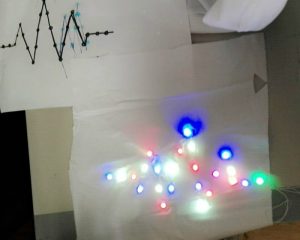
Neopixel shining in different colors
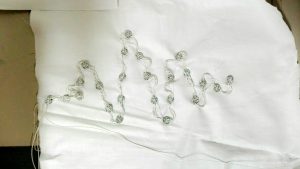
Soldered Neopixels
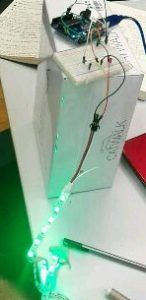
Neopixel srip
CODE:
#include <Adafruit_NeoPixel.h>
#ifdef __AVR__
#include <avr/power.h>
#endif
#define PIN 6
// Parameter 1 = number of pixels in strip
// Parameter 2 = Arduino pin number (most are valid)
// Parameter 3 = pixel type flags, add together as needed:
// NEO_KHZ800 800 KHz bitstream (most NeoPixel products w/WS2812 LEDs)
// NEO_KHZ400 400 KHz (classic 'v1' (not v2) FLORA pixels, WS2811 drivers)
// NEO_GRB Pixels are wired for GRB bitstream (most NeoPixel products)
// NEO_RGB Pixels are wired for RGB bitstream (v1 FLORA pixels, not v2)
// NEO_RGBW Pixels are wired for RGBW bitstream (NeoPixel RGBW products)
Adafruit_NeoPixel strip = Adafruit_NeoPixel(60, PIN, NEO_RGBW + NEO_KHZ800);
// IMPORTANT: To reduce NeoPixel burnout risk, add 1000 uF capacitor across
// pixel power leads, add 300 - 500 Ohm resistor on first pixel's data input
// and minimize distance between Arduino and first pixel. Avoid connecting
// on a live circuit...if you must, connect GND first.
void setup() {
// This is for Trinket 5V 16MHz, you can remove these three lines if you are not using a Trinket
#if defined (__AVR_ATtiny85__)
if (F_CPU == 16000000) clock_prescale_set(clock_div_1);
#endif
// End of trinket special code
strip.begin();
strip.show(); // Initialize all pixels to 'off'
}
void loop() {
// Some example procedures showing how to display to the pixels:
colorWipe(strip.Color(255, 0, 0), 50); // Red
colorWipe(strip.Color(0, 255, 0), 50); // Green
colorWipe(strip.Color(0, 0, 255), 50); // Blue
//colorWipe(strip.Color(0, 0, 0, 255), 50); // White RGBW
// Send a theater pixel chase in...
// theaterChase(strip.Color(127, 127, 127), 50); // White
// theaterChase(strip.Color(127, 0, 0), 50); // Red
// theaterChase(strip.Color(0, 0, 127), 50); // Blue
//rainbow(20);
// rainbowCycle(20);
// theaterChaseRainbow(50);
}
// Fill the dots one after the other with a color
void colorWipe(uint32_t c, uint8_t wait) {
for(uint16_t i=0; i<strip.numPixels(); i++) {
strip.setPixelColor(i, c);
strip.show();
delay(wait);
}
}
//Theatre-style crawling lights.
void theaterChase(uint32_t c, uint8_t wait) {
for (int j=0; j<10; j++) { //do 10 cycles of chasing
for (int q=0; q < 3; q++) {
for (uint16_t i=0; i < strip.numPixels(); i=i+3) {
strip.setPixelColor(i+q, c); //turn every third pixel on
}
strip.show();
// delay(wait);
for (uint16_t i=0; i < strip.numPixels(); i=i+3) {
strip.setPixelColor(i+q, 0); //turn every third pixel off
}
}
}
}
// Input a value 0 to 255 to get a color value.
// The colours are a transition r - g - b - back to r.
uint32_t Wheel(byte WheelPos) {
WheelPos = 255 - WheelPos;
if(WheelPos < 85) {
return strip.Color(255 - WheelPos * 3, 0, WheelPos * 3);
}
if(WheelPos < 170) {
WheelPos -= 85;
return strip.Color(0, WheelPos * 3, 255 - WheelPos * 3);
}
WheelPos -= 170;
return strip.Color(WheelPos * 3, 255 - WheelPos * 3, 0);
}
I created an animation with the help ofAdobe Illustrator, the application for iPad Paper by fiftythree and VideoPad by NCH Software.
My flashback is about the uncle who was playing cards with his friends when suddenly armed people broke into his house. They kidnapped and tortured them.
Today Jeong and me were thinking about the costume design. We decided to use neopixels and locate them in the chest of the performer. At the beginning we did not know which neopixel pattern could be the best. After a while we came up with an idea. We decided to make the shape of a heartbeat. We think this shape match perfectly with the theme of performance.
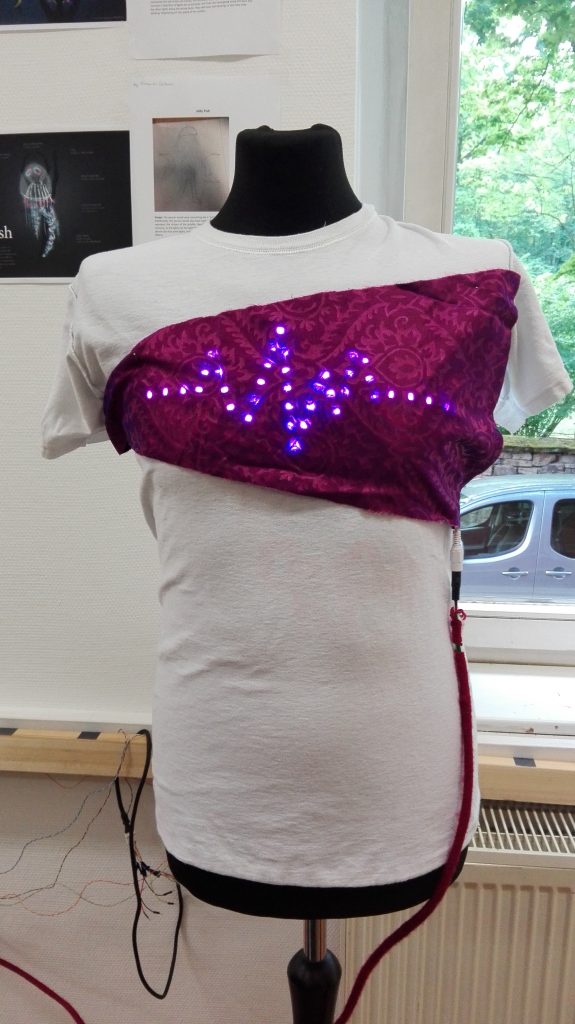

After looking and asking a lot, we were able to find a car seat that can be use to simulate the plane seat.
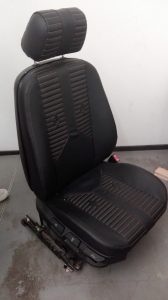
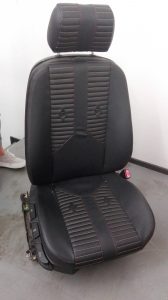
Testing the projections on a wall and on white clothing
The trousers were made out of a white shiny fabric and the t-shirt was a non-shiny fabric. We were comparing both to see wich one can work better for the performance. In one hand in the schiny fabric the colors looked brighter but in the other hand its own glow reflects the light more than the non-shiny fabric.
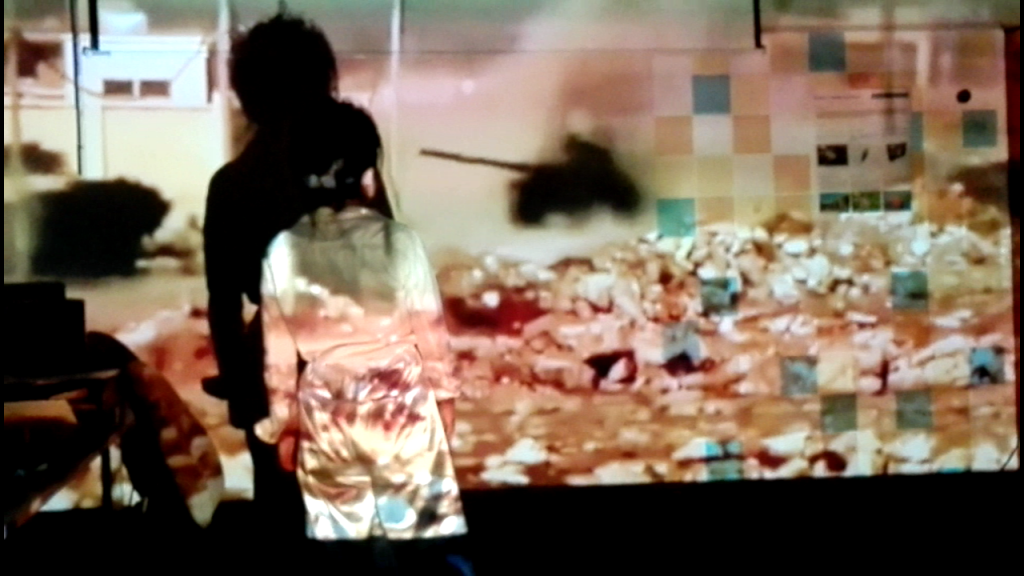
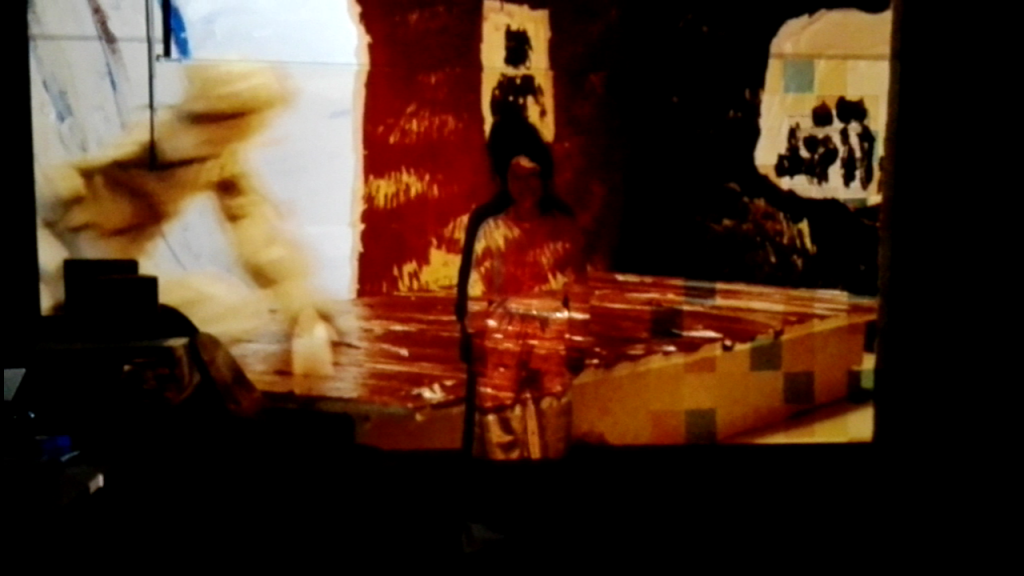
For this project we need an interactive „costume“ for the performer. The idea behind this costume is that the actor wears white clothes, so the projections can be easily visible while he is walking through the stage.
The costume is set up with fiber optics who are located in the center of the T-shirt (chest of the actor) in order to show how he is feeling when he is remembering his past.
The light who is going to shine trough the fiber optics will be twinkling and will change its color. In other words, the performer is going to show his state of mind/pulse trough light . The intensity will change everytime he gets from A to B.
Materials:
I found a couple of webpages where we can apparently free Download clips that may be helpful for the performance
Weapons-sound:
http://www.audiomicro.com/free-sound-effects/free-guns-and-weapons
Fight-sound:
https://www.freesoundeffects.com/free-sounds/fight-sounds-10034/
Scream-sound:
http://soundbible.com/tags-scream.html
Muezzin:
http://freesound.org/people/AcousticYorick/downloaded_sounds/
Experimentation with neopixels and optical fiber
In the pictures below we can appreciate the first costume model with a small bag in the back for the feather HUZZAH esp8266 and another one un the arm for the accelerometer.
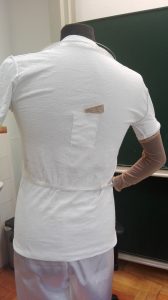
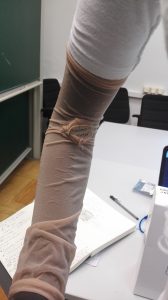
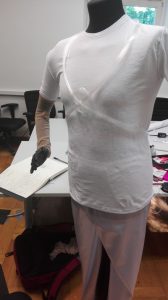
Here are a couple of videos of our experiments: